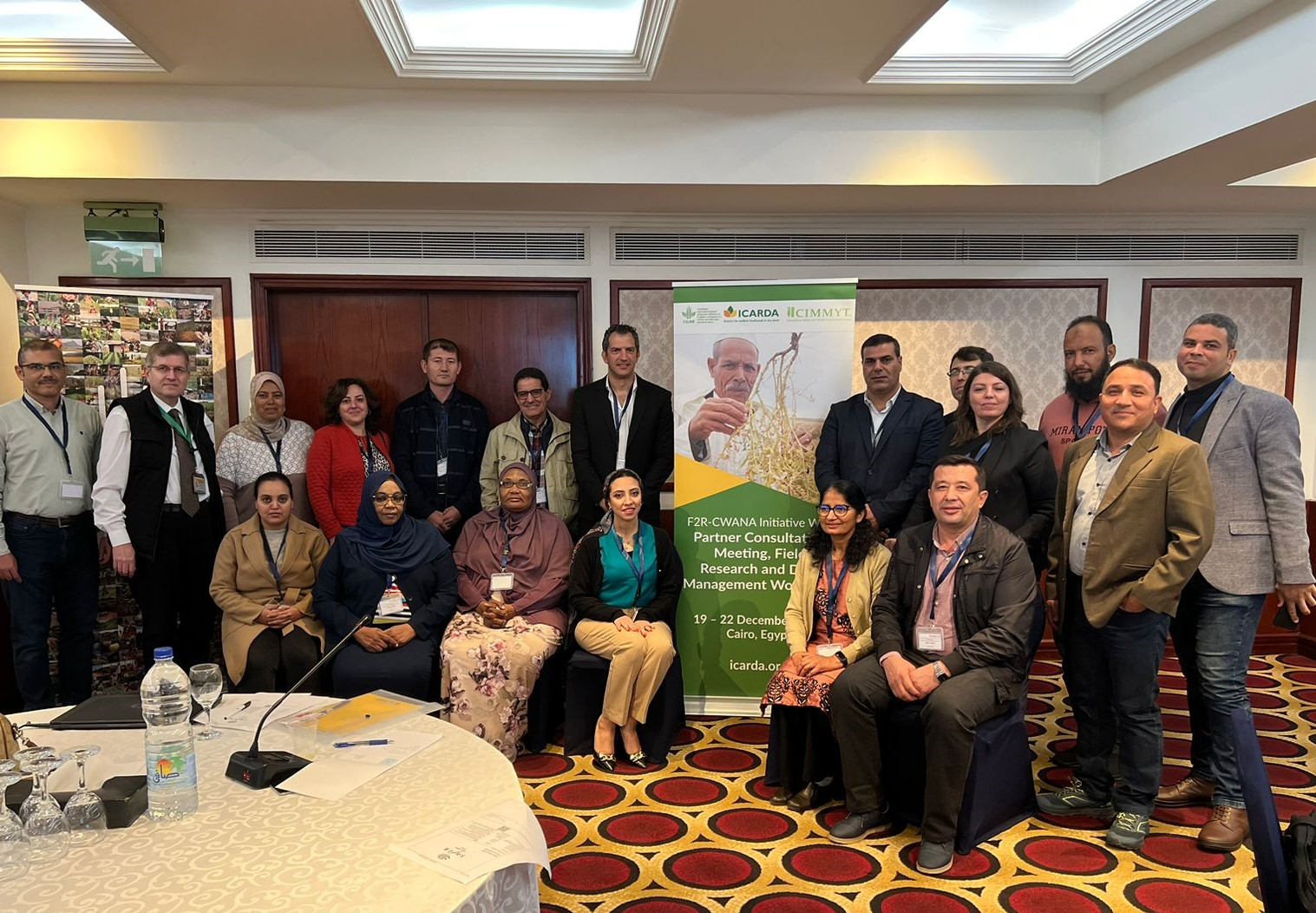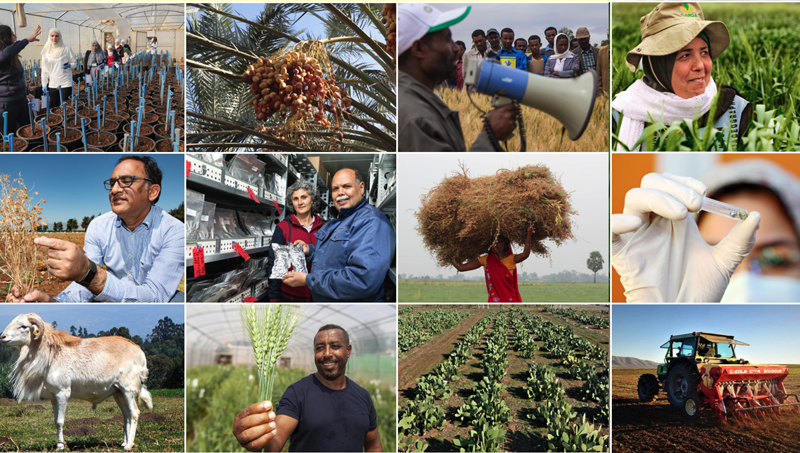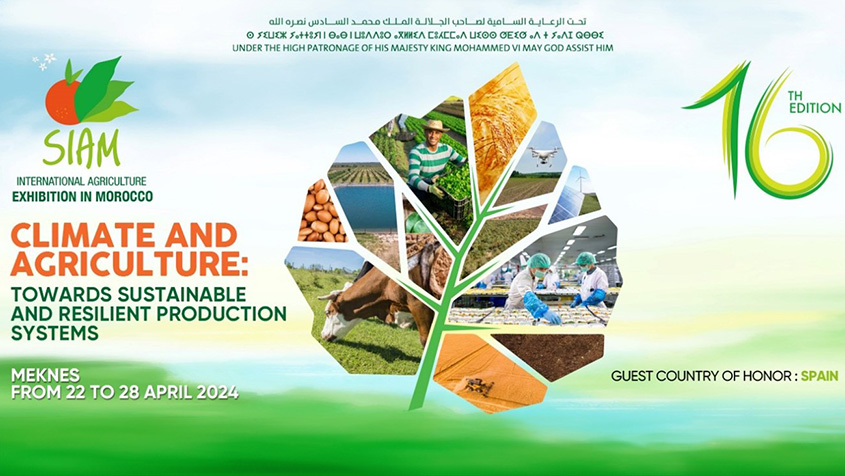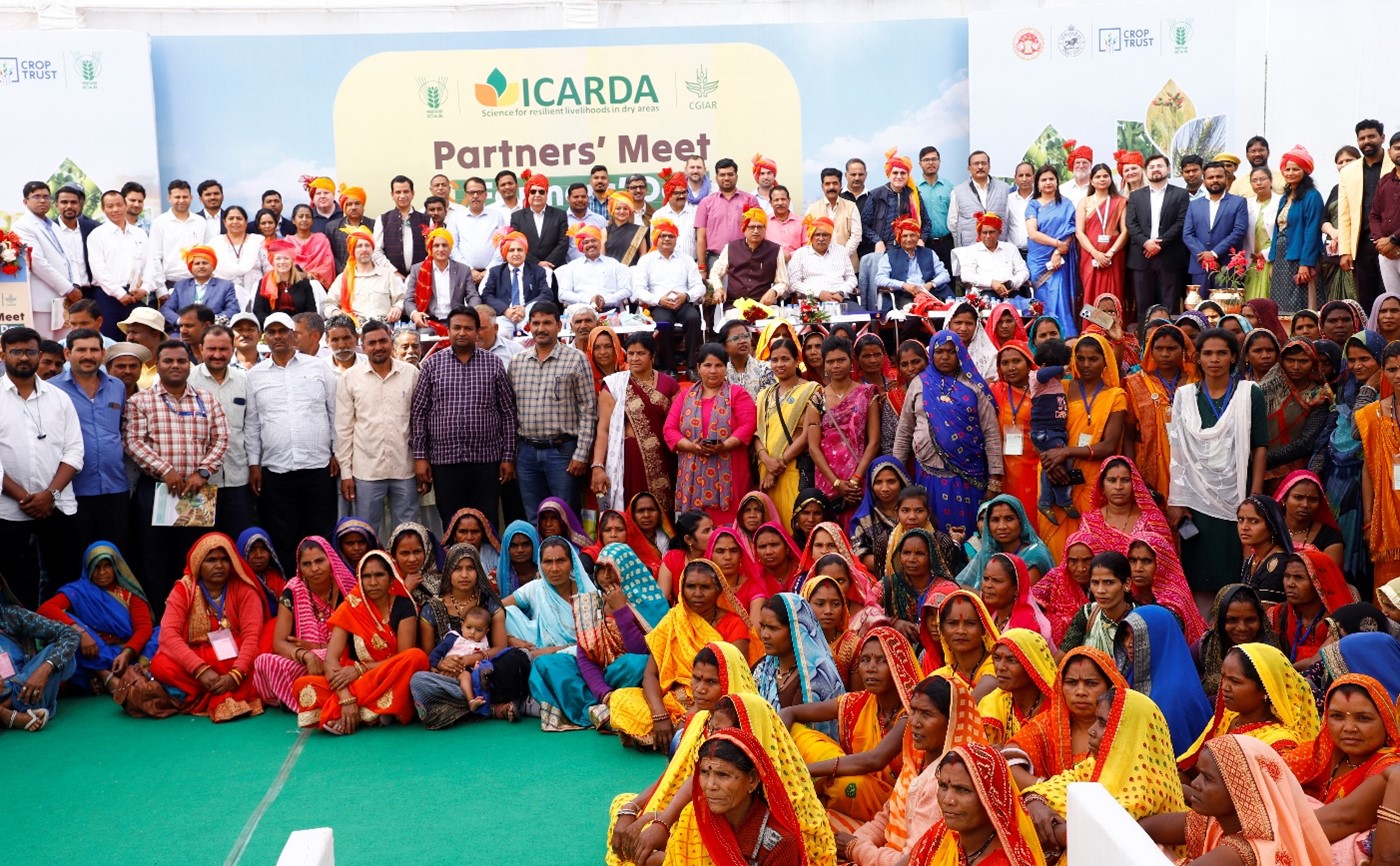How our partners help set flexible and achievable goals for CWANA

The F2R-CWANA partner consultation meeting in Cairo in December 2022 was an opportunity for partners to update each other on progress, share knowledge, identify research gaps, prioritize the scaling-ready technology, and explore opportunities we have seen along the path to resilience.
When researching and developing innovations at ICARDA, our partners lead right from the start and throughout, helping us understand the most significant needs immediately and through regular updates, ensuring that our work is on-track and well-targeted to the demands of the communities and markets.
The CGIAR Regional Initiative ‘From Fragility to Resilience in Central and West Asia and North Africa ('F2R-CWANA)’ takes that exact collaborative approach to set and meet flexible goals that can be achieved amid an intensifying climate crisis and global shocks to markets and supplies.
Sessions were carried out to improve knowledge-sharing in areas such as improved crop solutions, water management, capacity building, training and knowledge transfer and communication technologies. Facilitating the presence of partners in one place is also vital to help delegates understand available resources and how they can be shared for the common good, as well as swap important lessons learned and focus on the best components needed to package innovations to make sure they are affordable and relevant to farmers’ needs.
Another key process in such collaborative consultations is to analyze research gaps for major food crops and cropping systems and to conduct critical assessments for the sustainable intensification of the production environments in CWANA countries such as Egypt, Jordan, Lebanon, Morocco, Sudan, Turkey, and Uzbekistan. Agronomic solutions for the three significant agronomic crops in all seven countries were identified. Such analysis will guide strategic collaborative research to fill the research gaps, prioritize scaling-ready technologies, and bring together strategic partners for scaling innovations in the respective countries.

Ultimately, collaboration and regular updates will build confidence and fellowship between partners, streamlining research and strengthening the concept of a shared route from fragility to resilience for the region’s vulnerable but resource-rich agri-food systems.
Read the full report from the F2R-CWANA partner consultation meeting here.
---------------------



